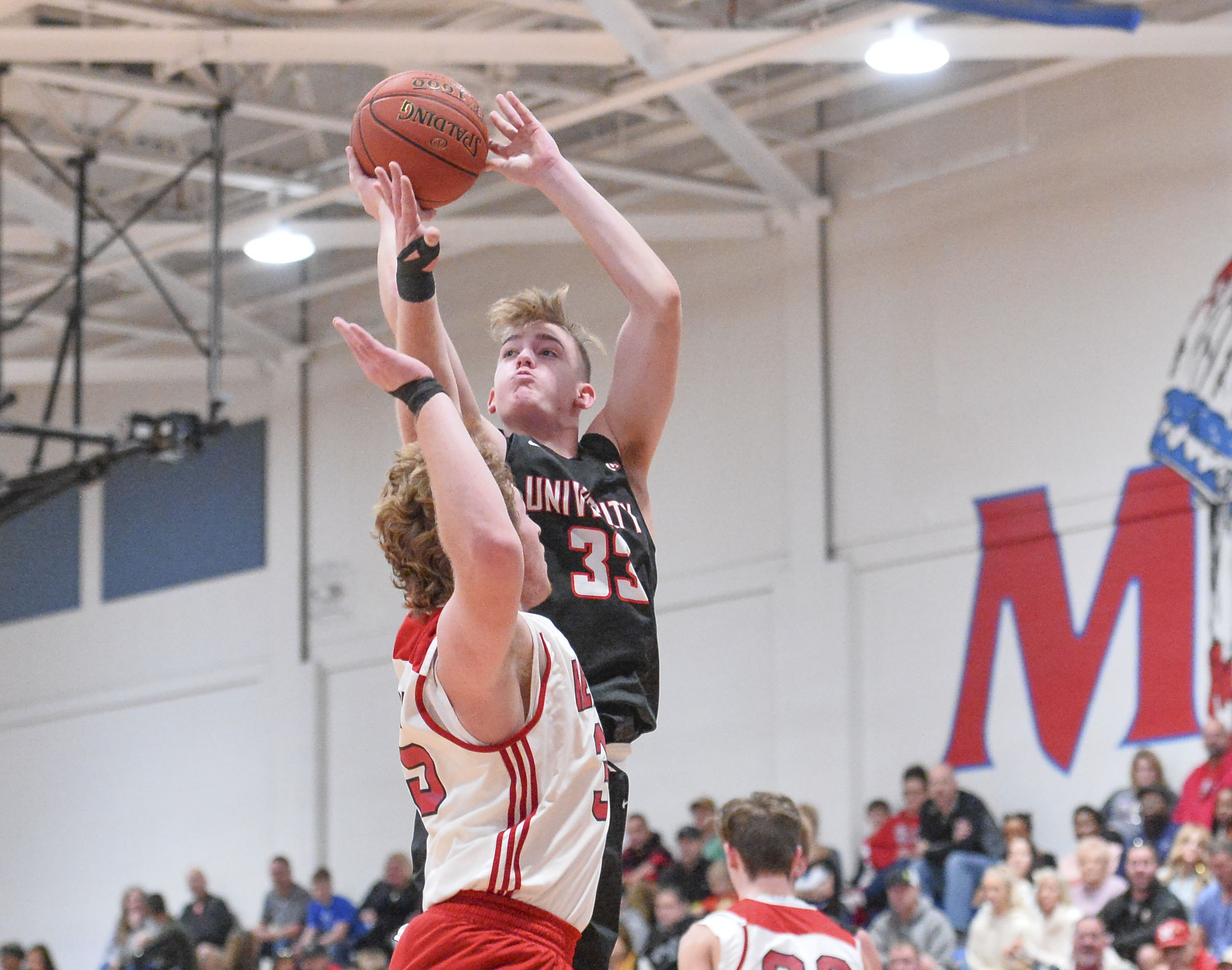This is Part 1 in a two-part series looking at how multi-sport athletes will handle back-to-back and overlapping seasons
MORGANTOWN, W.Va. – When Gov. Jim Justice announced in December that winter sports would be pushed back to March 1, many questions began circulating. Mostly contained to social media, one question that wasn’t being asked: How will multi-sport athletes function?
The answer is that, in most cases, they’d have to choose between one sport or the other. Bigger schools would have some breathing room to allow multi-sport athletes to maintain proper physical health and their schoolwork, but the smaller schools would likely have a problem bigger than they could handle.
Then, a reprieve, when Justice announced winter sports practices could resume Feb. 14 and games, March 3. Still, this is a tight crunch for winter and spring athletes to manage.
While smaller schools still have a lot of logistics to figure out – a topic we’ll touch on in part 2 of this series – Class AAA athletes, such as University High junior Aaron Forbes, have an easier path to work out a way to play two sports.
Forbes plays basketball for the state-title defending Hawks, as well as baseball for the high school, and noted the recent change in Justice’s return-to-play policy is better than the original plan.
“I was expecting that it would overlap five games, and I was going to go to one of the practices and then go to either game after that. Both of the coaches talked to me and said they’d be cool with overlapping like that. And if we both had a game on the same night, I’d pick whichever one was bigger.”
Forbes noted that when Justice pushed forward the winter sports start date, both coaches were excited and were more comfortable sharing him. The alternative was choosing just one sport.
“I didn’t know what to do because I like playing both, but at the end of the day I was always going to have to pick baseball because that’s what I’ll go further in,” Forbes said.
“Desperate times call for desperate measures, but we’ll all work together,” UHS boys’ basketball coach Joe Schmidle said. “I left the decision up to Aaron and his family. I called him as soon as I found out what was being proposed and I said, ‘Look, obviously it’s all about you. It’s not about me or anyone else, it’s about you. You need to do and make the choices that are going to make you happy and that are in your best interest. Whatever those choices are, I’m not going to be mad at you.’
“I wanted to make sure that was in his head, because of the pressure that, ‘Coach is going to be mad.’ He can’t think that way.”
Although he’ll be playing two sports, Forbes knows that attending a triple-A school, he’s in a better spot than most high school athletes. He sees it firsthand, having friends from both Trinity Christian School and Clay-Battelle that play winter and spring sports.
“They don’t know what they’re going to do,” he said. “Some are trying to decide on one or the other; I don’t think either of them is going to try and do both.”
Schmidle is concerned about how smaller schools are going to operate, noting that he’s heard some schools may be going to cut a sport entirely to ultimately help the student-athletes.
Despite the headaches that have come along with this, Forbes is thankful the WVSSAC has pushed to give athletes the chance to play as easily as possible. Still, there’s a concern for multi-sport athletes’ physical health and maintaining grades. This was a concern for Aarons’s parents and is a concern Schmidle raised for all student-athletes that will participate in two sports.
“My biggest concern, even a bigger concern than possibly increasing the chance for injury, is their academics,” Schmidle said. “How are these guys going to have time to do their homework and keep up? That’s a tough one. Plus, have a life. It’s bad enough when you’re playing one sport, I can’t imagine having a game six nights a week. I feel bad for the kids, but at least they do have an opportunity.
“If they want to do it, they can do it. If they can handle it, I’m sure a lot of kids will take advantage of it.”
TWEET @andrewspellman_




